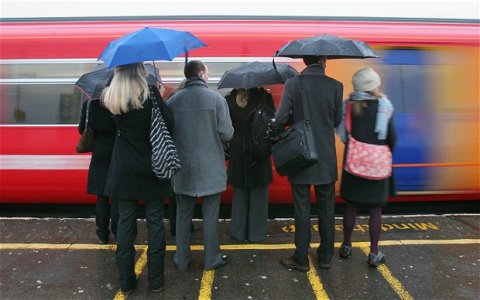
15 January 2019
The government has appointed Keith Williams as the chair of the biggest review of our railways since privatisation began. This is your chance to have your say over the future of our railway.
You haven't been asked your opinion on privatisation since 1994! Here's your chance:
Comment below to sign this letter and tell Keith why you want to see public ownership of the railways.
Dear Keith Williams,
Our railways are clearly not currently fit for purpose.
Train travel has never been so popular. But the service passengers receive is deteriorating. We've seen repeated delays and cancellations across the network. Trains are overcrowded. Rail fares continue to spiral up and up. Train companies have failed to invest in new infrastructure. Our railways are broken.
We believe that public ownership would help solve these problems - so we're really happy to hear that you've promised to keep public ownership on the table in your review.
By taking private companies out of the rail network, we can:
- Remove shareholder profits from the system and reduce costs.
- Use these savings to fund reduced fares, and a rail service run for people, not profit.
By putting the public at the heart of our railways, we can:
- Ensure they get the investment they desperately need.
- Use this investment to improve services, reduce delays, and upgrade the rolling stock.
76% of the public agree, and we want to see our railways in public hands.
Yours,
The public.
Comment below - Why do you want public ownership of your railways?


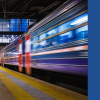
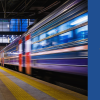
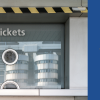
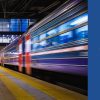
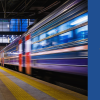
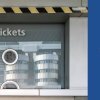
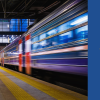

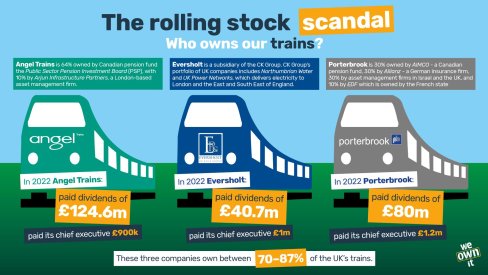
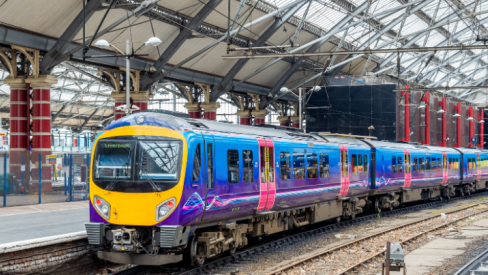
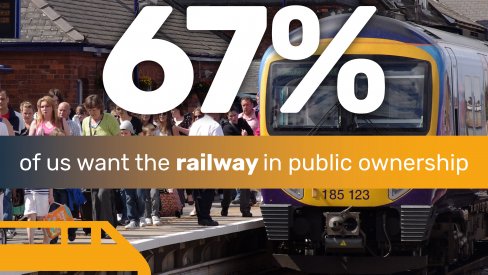

Comments
EILEEN QUILTER ... replied on Permalink
I think that of all the privatisation exercises, the Rail has been the least successful and most troublesome. None of the private enterprise companies that have attempted to run their piece of the system has really managed to do so to their satisfaction without pricing Rail out of the market for most people except for essential travel and have frequently caused mayhem into the bargain. Enough is enough. It is necessary now to accept that the national nature and interdependence of the railway network and the importance that it has, and could have for even people, makes it a better solution to take it back into public ownership.
Jonathan Swift replied on Permalink
The railway ha$ got wor$e, and all that ha$ happened i$ that other people have got richer.
One of the main argument$ again$t public owner$hip i$ 'inflexibilty'. Why i$ a huge company like Virgin a$$umed to be capable of runing a railway, when they made their money $elling record$, and their main bu$ine$$ now i$ phone$ ?
Philip Cumberland replied on Permalink
I want the railways taken into Public Ownership, not state ownership. I want to see every citizen who has a National Insurance number given one share each in the railways. No one can own more than one share, any profits made would be shared out in the form of dividends to the shareholders, The shares cannot be sold, given away or sold. When the citizen dies that share disappears. The state will take over the railways and give them to the people.
Anonymous replied on Permalink
Totally agree, you echo my own thoughts exactly. I've written to We Own It on exactly this subject a couple of times but sadly got no response. Putting the Railways back into state hands is the *last* thing we should do. The users of the railways should be the owners. End of.
Biba replied on Permalink
Dear Philip and Anonymous,
Thank you for your comment and suggestion. The reason we want public ownership as opposed to share ownership is because the railway needs public subsidy/investment to run. Some lines are naturally profitable and others are not, but all of the lines are needed for passengers despite this. This is why it's important that the railway runs as a cohesive network and profits that are made are reinvested back into the service. We think that people want a good service that runs efficiently for everyone over receiving any share profits back themselves.
On the point about contacting us on this issue, we do our best to respond to every single email we get so we are really sorry to hear that you did not get a reply to this.
Many thanks,
The We Own It team
Richard Stakes replied on Permalink
The railways are now in a chaotic state as never before. Privatisation will not work however how many tries the government takes to try to fool the paying public. The Tories should admit their defeat and move on. They won't of course as all of their policies are ideologically (idiotologically) driven.
Alan wright replied on Permalink
I want a railway that has proper, ongoing investment to maintain its infrastructure ; which is staffed for the benefit of passengers, not managers ; that ploughs all profits back into the service rather than lining the pockets of shareholders ; that is fully integrated with other transport systems, including publicly-owned buses, trams and underground systems ; that has a simple fare structure ; where subsidies go to reducing fares to entice everyone to use trains rather than cars, not to provide profit for private companies ; that is owned by the British people.
Andrew Meadows replied on Permalink
Today I travelled on Dutch trains and British trains. The difference in quality of service is profound. The British rail experience is embarrassing.
Les Beswick replied on Permalink
I lived in Holland in the early 1980's, and in doing so, travelled by bicycle and trains through Holland and also across the continent of Europe, there trains put British trains to shame..
Tina Leonard replied on Permalink
I don’t want shareholders making money from our railways. I want the profits to be put back into improving the service.
Paul Brown replied on Permalink
The railways are so fragmented it should be one railway, I've worked on the railway for 10 years and during that time the company that was not profit making was the best, maintainence was done and money ploughed back into the services how it should be
Tim Anderson replied on Permalink
Private companies have proved incompetent at running a railway. State run railways work better so take them back now.
Charlie Browne replied on Permalink
Railways belonged to the British public, but were sold off at knock-down prices to entrepreneurs byMargaret Thatcher.
stuart bannerman replied on Permalink
The present system is a shambles - many times worse than when it was 'British Rail' in the 1980s (I know, I was a season ticket commuter back then). Privatised franchises put short term profits before long term investment. By contrast, the public run East Coast main line manages to get it right.
Ruth Dawes replied on Permalink
East Coast Mainline under public ownership worked very well. Let's take that as a good model and take the whole network into public ownership.
Dr. Rodney Watts replied on Permalink
I am not a person who believes in public ownership for each and every large corporation. However the Railways are clearly a nationwide concern, dependent on the support of a sizeable proportion of the public. Indeed the latter are stakeholders who have been utterly let down by privatisation, which has seen certain individuals make significant financial gains at the expense of Joe Public, who has also suffered personal distress. The efficiency of individual franchises and the efficacy of national maintenance and improvement works are deplorable.
Jacqueline Nash replied on Permalink
Please make the railways fit for purpose. Stop paying the shareholders and subsidizing foreign state owned railways. Charity begins at home
David Smallman replied on Permalink
Some form of public ownership would make it possible to simplify the rail fare system, this would provide more savings and would make it easier for more people to travel by rail. -Good for passengers, good for the environment.
Michael Lewis replied on Permalink
Our railways are an expensive rip off where profits matter rather than running a public service.
Lou Simpson replied on Permalink
I remember when we owned the railway and sure it was not perfect, but I do know I could get most places with no changes ar only one. The fares were affordable and need to be again.
Clare Rochford replied on Permalink
I think that the railways should be a public service.
william gordon replied on Permalink
Its time us being taxpayers get a first class deal for us, not propping up fat cats. and saving so much money will ensure we have a service we deserve
Mike Tyrrell replied on Permalink
I no longer use the rail as it is too expensive and unreliable, why pay to stand in overcrowded carriages, far more convenient and comfortable using my car
Simon Warren replied on Permalink
Rail fairs rising and trains services getting worse instead of train been run to the same set of rules for a better price not going into outside company’s profits
Emily replied on Permalink
Improve efficiences across the network through joined up planning between operators and network rail and across regions to improve provision and accountability
Simon Price-Johnson replied on Permalink
The rail network (and other public transportation systems) is as much an essential service as water, healthcare, education and public safety and as such should be owned by the people, admistrated by the state for the public benefit and never be abused by the private sector for the personal gain of fat cats.
Pamela Ellis replied on Permalink
Passengers before profit. Let's have a railway that is all of a piece and run for its users not shareholders.
Roger Philpott replied on Permalink
The profits from the railways would then be put back into improving the system rather than being syphoned off to shareholders and speculators of companies which are sometimes foreign owned and not even in British ownership. Accountability would also be much more specific.
Peter Buckley replied on Permalink
The cost of running our railways has resulted in more money being spent on subsidising them than was spent when they were in public ownership. This money has gone directly to shareholders in private companies or to nationalised railways of other countries. The Conservative do not believe in nationalised railways unless they are foreign railways operating in this country.
Michael Galvin replied on Permalink
Railways are a public service and
should be publicly owned and run
John Howitt replied on Permalink
It's just common sense
Alan frost replied on Permalink
Railways run for the public not for profits.
Judith Joy replied on Permalink
The privatisation mantra which drives our government has been given long enough to prove it works better for the country. The result is that it does not and the country now demands railways to match those of almost all comparable EU countries. I am tired and fed up of being embarrassed by the railway service we offer when this country invented the system. We are a laughing stock and lag way behind our EU partners. Do our Tory Ministers never travel by train when abroad - or in this country?
Patrick Jeffery replied on Permalink
The most successful rail network in the UK is in Northern Ireland & it is in public ownership. They have been able to invest in the infrastructure while keeping fares stable & provide a first class service to the travelling public. This is an example of how public ownership will improve our rail system. I urge you to recommend taking the rail system back into public ownership to take us into the future.
David Wagner replied on Permalink
We need a reunited railway, re-nationalised to serve the passengers rather than the shareholders of the train operating companies.
Paul brown replied on Permalink
Railway is too fragmented I've work on the railway for 10 years and the best company I worked for was non profit making ploughing all money made into maintainence and giving customer service
Heidy Kempe-Bottcher replied on Permalink
I strongly agree with public ownership of our railways!
Peter Sparrow replied on Permalink
The railways need effective management - done for the people and not big companies!! Grayling is uselss and does't seem to be able to run anything effectively!!
Richard Lewis replied on Permalink
Do not close off your mind to the obvious,just for political dogma.
Under British Rail, it was the most efficient system in Europe, it was by no means the best but it was run very efficiently and cheaply.
Mitzi Broom replied on Permalink
Privatisation has clearly not worked. The maintenence of railways is a shambles, cost of travel puts people off using services.
Jim Jones replied on Permalink
The Government has accepted the need for a second, safety critical, person on trains in the interests of public safety but, under private ownership the Train Companies can ignore or delay its operation. This is a further example of how the private sector fail the travelling public and demonstrates its gross inadequacy.
Iain Sword replied on Permalink
It has been clear that privatisation and fragmentation of Britain's railways has benefitted the Train Companies and not the passengers. Strongly rising prices are met with with poor reliability and punctuality going from bad to worse. Huge sums of money have been paid in dividends to shareholders which with a publicly-owned railway could have been invested in services. Many of the Train Companies are foreign-owned, some in countries which do not have privatised railways and where services are better and fares lower. The saga of the East Coast line where it has been profitable under public ownership but with operating companies unable to make it viable and losing money to the public purse. Industrial relations under private ownership have been lamentable. The much vaunted timetable improvements turned out to be a fiasco. This privatised model is inefficient and poor value for money.
Heidy Kempe-Bottcher replied on Permalink
I strongly agree with public ownership of our railways!
Carol Hull replied on Permalink
Standing on a train from Kings Cross to Doncaster on a Virgin train shows me privatisation is Not Working.
David Britten replied on Permalink
Privatisation has been an unmitigated disaster. Whereas public money used to subsidise rail transport for the benefit of rail users, even more money now subsidises the dividends of shareholders and executives while rail fares increase to levels unprecedented across Europe
Karen Stevens replied on Permalink
I commute daily to my place of work, mainly by rail. I have a work subsidised season ticket, which still costs me more than £1600 per year, to travel on substandard services which are overcrowded and subject to delay. This is unacceptable. It is time to return public transport to public ownership and the profits ploughed back into improving the service and infrastructure.
Mik Norman replied on Permalink
We need investment now in rolling stock, stations and freight; not years after companies get contracts and then run old stock into the ground until they have to invest. We need longer trains on busy lines where currently companies lease cheap short trains for profit-boosting.
We need a "passenger first" culture - then work from there - not a "profit first" one as we have now.
We need an integrated rail system - in fact more than that, we need an integrated TRANSPORT system and an environmentally sustainable one, linked with bus and cycle. The entire Dutch rail network runs on sustainable electricity - we still use antiquated and polluting diesels.
We need cheap fares - these boost the economy, a move away from private cars; combat isolation for older people (railcards notwithstanding) and assist people with disabilties. We need more awareness of disabled travellers - many of the private companies STILL reflect appalling attitudes in this respect.
We need to vastly improve the infrastructure - reinstate viable old lines, upgrade busy single lines to double ones again, link major development areas stupidly being built nowhere near rail lines let alone a station; allow tunnels and bridges to accept power lines; through continental trains and effective freight haulage.
We need guards on trains - for safety, emergency cover and passenger assistance.
Rebecca Pollitt replied on Permalink
Having private companies running transport for poor people is just not efficient. Making a profit from people's necessity of travelling to work is terrible. Trains if ran properly could reduce emissions, help the environment, reduce congestion, make air cleaner (electric trains) and could improve the commute for millions of people. Currently, trains are unreliable, crowded, out-dated and inefficient. Why would private companies want to invest in the railways? It's not in their interest...they don't use it or more importantly, they don't need it.
Maggie Kraus replied on Permalink
The railways are in a desperate state and need controlling without greed being a motivator.
David Tigwell replied on Permalink
I lived in Germany for many years where the railway is nationalised. The system is integrated, reliable and efficient.
John Illingworth replied on Permalink
Railways are a natural monopoly, where it is difficult to establish any meaningful market place or competition between suppliers. With no reliable way to judge performance, governments are obliged to use revenue-raising as a proxy, with the disastrous results seen on the East Coast main line. Public ownership is the only sensible way to run this system. All other options are inferior.
Ken Elmer replied on Permalink
Because it is the only way to fix it.
Carolyn Knight replied on Permalink
The last few years have proven that publicly owned railways perform better and are more profitable than the private ones that filed repeatedly.
We are subsidising private failure with public money, and these companies are still taking 'profits' and paying divivdends. What with? The public money they receive. Madness.
Ian Evans replied on Permalink
What we have now, is not fit for purpose, successive governments have dodged the issue in favour of letting private companies make obscene profits, without putting anything back in
Gail McCallum replied on Permalink
Our railways should be run for passengers, not for shareholders.
Christopher Sheldon replied on Permalink
As a regular user of Scotrail and the former East Coast, then Virgin and now LNER I have seen these service decline in private hands. It's time to call it a day and support the public demand for these services to be brought back under permanent public ownership.
David osborn replied on Permalink
Please stop profits from leaving uk so money can be used to improve railways
Sarah Joiner replied on Permalink
Like the Post Office, the railway system was paid for from Government funding, for the people. The Government got the money with which they paid for the railway from taxes, from funds from the people. It was never theirs to sell. So, since the private zone is not working, it is a good opportunity to give it back. Other state run railways like Holland & japan, have huge success. In fact, I m guessing they are able to be so efficient because they pay for the best in all areas, and therefore it works well, and everyone is happy. It is inevitably more efficient to use profits to improve the serives offered.
Susie Main replied on Permalink
Private ownership has proved an expensive disaster, please use common sense and bring the railway back into public ownership.
Anonymous replied on Permalink
Many of our railway companies are owned by European public bodies and their countries railways are, very sensibly, in public ownership. Railways are essential parts of a country's infrastructure and should be planned and owned in the public, rather than shareholder interests.
paul Johnson replied on Permalink
Renationalisation of our railway network is imperative as at present it is a national digrace!
maggie kraus replied on Permalink
Already commented on this. Time to re-nationalise the railways!
Ann Eggleton replied on Permalink
In this modern world, the option to travel in a way that does less damage to our planet is (should be) a Common Good. We need to keep it part of the public zone to ensure that social good is valued more than commercial profit.
Kevin Stables replied on Permalink
I want to see joined up railways, instead of fractured franchises. I want the money paid on fares to be spent on the railways, not to line the pocket of shareholders!
Rosemary Golding replied on Permalink
I'm old enough to remember the nationalised railway system. How I've missed it! Whatever the drawbacks, fixed reasonable ticket prices across the country and profits fed back into improving the service rather than into shareholders' pockets. It's a no-brainer. Let's get a decent public transport system working again
Kim Moore replied on Permalink
Because the railways are an integral part of both social and economic infrastructure. They shouldn't be a political pawn, to be milked as a cash cow by shareholders. They are essential for the public and should be in the public's hands, and make fares not only cheaper, but also the same for journeys of the same length, regardless of area.
Jerry Gale replied on Permalink
Because private companies have made a complete mess up of it so far and the only people that gain from private companies are the shareholders.
Lewis Gurran replied on Permalink
Line closures, crippling lack of investment, continually inflated fares, attempting to phase out guards for the sake of savings on wages and massive public money bailouts when fudged numbers make franchises "unviable" - the rail system has dreadfully mismanaged for decades and is still moving in the wrong direction. Privatisation has demonstrably given worse value and worse service. It needs to be reversed for the sake of the public good.
Jan Lucas replied on Permalink
The government is currently subsidising the rail network with taxpayer's money; money that is going directly into shaeholders pockets whcilst the railway system is creaking at the seams. get it back into public ownership so that at least the money which WE are subsidising the railways with will not be wasted but actually go to do some good. and maybe we will have a chance to get a great railway service again.
mark.grocott replied on Permalink
The Railways should have not be sold off private sector taken profits out to share Holders fat cat it was run better under British Railways it should no run for profit
Peter Cox replied on Permalink
After the success of the East Coast line it is clear that a publicly run service is both more efficient and less costly. It is also impossible to run a properly co-ordinated transport policy that puts users first when responsibility if spread amongst so many organisations. And a politician is in charge.
Public ownership should be based on a co-operative model so that all sections, employees, users and investors, including the taxpayer, have a fair say. The service should be focussed on delivering the needs of the whole community - and not just train users.
Tez B replied on Permalink
Public transport is a public service. It should always be run for the benefit of its users, never for remote shareholders or investors. Public ownership is the only justifiable and sensible formula.
Carole Griffiths replied on Permalink
East Coast was profitable until you privatised it again. Railways should be fun for the public not profit.
Brendan Frain replied on Permalink
Public ownership is in the best interests of all concerned.
Susan Richardson replied on Permalink
Public ownership would result in a more co-ordinated system and if managed properly better services. Any profits could be used to maintain the railways rather than to enrich individuals.
Anonymous replied on Permalink
Private franchises simply dont work to benefit the public or the economy. Why? Because subsidìes from taxpayers are needed to ensure safety standards are met. This finance is clearly not being used for intended purpose thereby not benefitting service users passengers in case of railway services.
Bran Whiitton replied on Permalink
The railways need long-term strategic planning, not decisions made based on the more vocal members of the government at the time. Almost every time I travel by rail (mostly long-distance journeys), I can see features which could be improved by better planning of the whole system. Some would be expensive, but some relatively cheap.
In view of increased worries about atmospheric pollution, seems probable that demand for rail use will increase markedly.
Mike Heeneman replied on Permalink
Margaret Thatcher revolutionised Britain by making state monopolies no longer assume the people by having competition from other companies so if people were ripped off they could vote with their feet and wallets and it worked, BT, Electricity and Gas were great examples and she deserves salutation for what she achieved. John Major as her 'consolidator' turned the motivation of privatisation from competition to solely the profit motive which was a corruption of her genius. Then New Labour came in and simply suppressed debate whilst starting privatisation of the NHS on the basis of the profit motive and Dutch auction bidding rather than any option for patients to choose anything. Rail is based on this, not letting customers use their wallets on the same section of track by making all franchises monopolies. How Margaret cries in heaven, she would allow at least two operators on any one route and whilst she would allow the private sector we would also allow state franchises. Put them in competition, let the people decide.
Stuart replied on Permalink
Bring back British railways..we need ALL the profits put back into a nationalized railway system..not into shareholders pockets...
Russell Odom replied on Permalink
Amplifier public service which should be run for public benefit, not profit.
Jane Owens replied on Permalink
Train companies are patently failing in their duty to passengers. I am old enough to remember just how much more efficient the railway services were when in public ownership.
Bill replied on Permalink
On three occasions last year my daughter was amongst the unlucky people left on the platform to wait nearly an hour for the next train on her daily commute. For the full duration of her season ticket she never got a seat.
Jim Ennis replied on Permalink
I want public ownership of the railways because in the Liverpool area, our local railways are owned by the Dutch State railway! Yes, the Dutch STATE railways.
I've recently visited Rotterdam, Netherlands and was very impressed with their public railways... and trams and metro system.
Why can't our railways be as good as theirs?
They never will be as long as they're are in the hands of right-wing capitalist who care nothing for the public, in my opinion.
Ken Hesketh replied on Permalink
The lack of investment in railway moving stock and track, efficiency and scheduling is pathetic compared to the amount the consumers regularly pay and are expected to pay in every price hike. This has to change.
John Tippins replied on Permalink
Private sector efficiency is a myth. Put the railways back into public ownership.
Simon Dugan replied on Permalink
.
Lyn Jones replied on Permalink
The logic behind having a privately-owned network is that the discipline of a competitive market will drive up standards and drive down prices. What we have is a network where standards are deteriorating and prices are increasing. Where private companies have reneged on contracts, as has happened twice on the route I use most (Edinburgh to London), operation has defaulted to public ownership (under the brand names East Coast Rail and currently LNER). Standards have been good and prices have been held. In other words, public ownership has shown itself superior to private. The timetabling debacle much more widely in the summer of 2018 has demonstrated how chaotic things can get with a spaghetti-dish of operating companies trying to integrate with Network Rail and various regulatory bodies. With just one set of rails, there is a natural monopoly; the bold/foolhardy/ideological decision to try to introduce a competitive market just hasn't worked. It's time to recognise this.
Roslyn Gowers replied on Permalink
Having ,ived and worked in Europe and experienced first hand just how much better publicly owned railways operate there, I really don't see any other option. Actually all public transport should be publicly owned and properly integrated if we are even to have a chance of responding to environmental issues.
Stephen Ryan replied on Permalink
We pay more money every year for a rapidly declining service all whilst paying ever greater subsidies for private companies dividends. The myth about private enterprise always leading to greater efficiency has well and truly been disproved with the railways.
Mark Fitzgerald replied on Permalink
Public transport should be run purely for the benefit of the public and not as a profit making exercise
All the best run railways around the world are publicly owned . Privatisation of the railways has been a big disaster
norman leigh replied on Permalink
stop the folly and deliver value for moneu and reinvest profits to improve service rather than benefit shareholders
Dennis Beddoe replied on Permalink
Railways are meant to be a public service and not just about private profit.
MR T P WEAVERS replied on Permalink
In my view, any profits made from the rail service should be re-invested to fund improvements instead of it being handed over to privately run foreign companies.
EDWARD M BLAND replied on Permalink
The private sector has proved to be disastrous for the customer.
Frances Kay replied on Permalink
Since the railways were privatised, fares have rocketed up and the service has declined nationally. I love trains and would use them more if the fares were less exorbitant and trains more reliable. We really can't go on like this. Joined up thinking will improve track and rolling stock, which is no one's responsibility. If there are profits to be made, why can't the Exchequer benefit, not private businesses who don't care about serving the public?
Chris Stevens replied on Permalink
Neo-liberal corporate government has had its day. It has produced a fragmented, poor, expensive service for increases set by HM Government.
National Rail was deliberately thrown to the wolves in the late 1980s by the same Tory policy, in particular Oliver Letwin who wrote the blueprint in his disastrous 1988 tome "Privatising the World" where the general public were deemed consumers who could seek choice. Sadly this was not the case as the railway providers became state monopolies whereby the tax-payer didn't get the profit but received all the risks. The crisis set by the devious Tory party need not have happened but they let it to create the need for privatisation.
The train services are slower today than in 1966. They are often late or not running at all. They are infrequent and unreliable and beset by problems with basic infrastructure.
As fares increase and people's wages decrease, the ability to use this essential service becomes impossible and then the whole system stops.
If you continue with this ridiculously bad political ideology which has seen living standards fall and corporate profits rise, this country will be at war with itself.
Sylvia Hotchin replied on Permalink
Privatisation HASN'T worked - profit before service quality NEVER will work - environmentally, we need a reliable rail service that works FOR transporting people and goods - that won"t happen while shareholders need to be kept happy with huge dividends - be brave and give the country the service it deserves
Margaret Williams replied on Permalink
It is essential that the railways are taken back into public ownership as soon as possible to end the disaster of privatisation
Dr Turhan Wishart replied on Permalink
I want a national railway system run and owned by the people! In addition, track and signalling need to be brought back together.
Norman McCanch replied on Permalink
railways should be a benefit to all instead of increasingly coming to be exclusive to the most wealthy and run primarioly for the benefit of shareholders
Pages
Add new comment